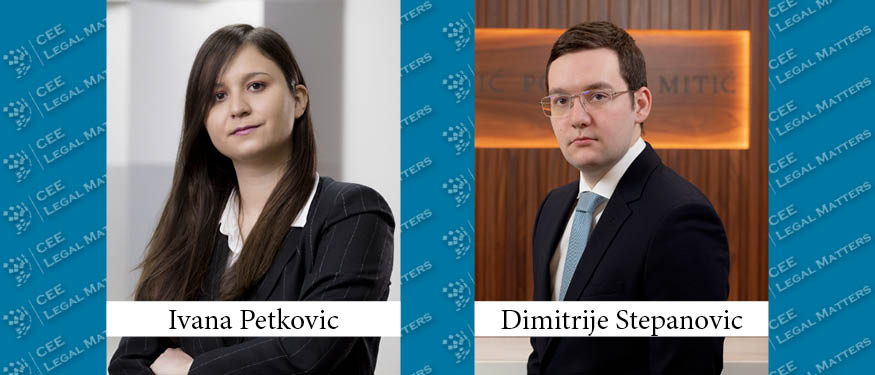According to positive regulations in the Republic of Serbia, each party shall present the facts and propose the evidence on which it bases its request or with which it disputes the allegations and evidence of the opponent. The evidence includes all the facts relevant to making a decision. Both in civil and arbitration procedures, the most common means of evidence are documents and testimonies.
The written statement of the witness presents evidence – a document made by a witness in which he presents his knowledge about the facts and events relevant to the court proceedings.
Written statements of witnesses were introduced in comparative practice as a substitute for direct examination of witnesses, with the aim of conducting the proceeding more efficiently. In domestic legislation, it was introduced by the Civil Procedure Law in 2011, as an alternative to “regular testimony”.
According to the provisions of the current Civil Procedure Law, as a rule, witnesses give their statements orally, directly at the hearing. Upon summons of the court, the witness personally attends the court hearing, where he is invited to present everything of his knowledge about the facts of which he is to testify, after which the court and the parties in the proceeding may ask questions for verification, supplementation, or clarification.
The Civil Procedure Law provides the possibility to present the evidence by reading the statement of a witness in which he presents the knowledge of the important disputed facts, where he knows them from and what is his relationship to parties in the proceeding. The written statement of the witness must be certified in court or by the person exercising public authority. Before giving the statement, the person taking the statement must warn the witness about the rights and duties he possesses by this law. The court decides on the presentation of evidence by reading the written statement of the witness, against which a separate appeal is not allowed.
In contrast to the comparative practice where the witness statement replaces the direct court examination of the witness when a party in the proceeding before the Serbian court proposes that the written witness statement be read instead of the direct hearing, that in most cases means that the witness will not be at disposal to the court to ask additional questions, as well as to the opponent for cross-examination. This way of presenting evidence significantly diminishes the possibility of the opponent stating the said evidence, as well as for the court to directly evaluate the probative value of the testimony.
Contrary to the adversarial procedure where a written statement of a witness represents an exception, in the arbitration procedure, it represents the rule. The manner of presenting this evidence in arbitration practice is much closer to comparative practice than to the practice of domestic courts.
In the arbitration procedure, at the very beginning, the parties and the arbitral tribunal agree on the rules that will be applied for the presentation of evidence, as well as the schedule according to which the parties will submit their submissions. The arbitral tribunal then prepares the initial procedural order containing the agreed rules. Often, the parties also agree on the use of supplemental rules for the presentation of evidence, such as the Rules on Taking Evidence in International Arbitration of the International Bar Association (IBA Rules on Taking Evidence in International Arbitration). In addition to procedural rules, the arbitral tribunal also prepares a timetable for the conduct of the proceedings, which includes deadlines for the parties to submit their submissions, as well as the date or dates on which a hearing will be held.
When it comes to witnesses, it is customary for the parties in arbitration proceedings to agree that witness statements will be submitted in written form. Witness statements are submitted as attachments to the submissions, which are filed according to a pre-agreed schedule, often several months before the scheduled hearing.
The procedural order usually defines the elements that witness statements must contain. This issue is also regulated by the Rules on Taking Evidence in International Arbitration of the International Bar Association, which prescribe that a written witness statement must include:
- Full name and address of the witness, a statement regarding their current and past connections with any of the parties in the proceedings (if any), and a description of their background, qualifications, training, and experience, to the extent they may be relevant to the dispute or the content of the statement;
- A complete and detailed description of the facts and the source of the witness's knowledge, as well as the documents to which the witness refers (if they are not already in the case file);
- Statement regarding the language in which the witness statement is drafted and the language in which the witness will be examined at the hearing;
- Confirmation of the truthfulness of the statement; and
- Date and place of giving the statement and the witness's signature.
In contrast to civil procedure, a witness who has given a written statement is available and appears at the hearing. The procedural conclusion usually provides that if a certain witness is called but does not come without a valid reason, the arbitral tribunal will not take that written statement into account. This creates a certain obligation for the party to ensure the presence of the witness. At the beginning of the hearing, the party that proposed the witness has the opportunity to ask the witness questions if it is necessary to clarify any ambiguities from the written statement. The opposing party then cross-examines the witness. After cross-examination, there is a re-direct examination, which is limited to the topics covered in cross-examination. The witness's testimony ends with a re-cross examination, which is limited to the topics covered in the re-direct examination. At any time during the hearing, the arbitral tribunal may ask the witness questions.
In a civil procedure, a witness usually gives an oral statement at the hearing. The advantage of giving an oral statement is that the court can assess the witness's credibility and the probative value of their testimony based on their demeanour, the way they give their statement, and how they answer questions. On the other hand, this method of presenting evidence limits the court's and the opposing party's ability to prepare for the witness's testimony. The court can only prepare based on the evidence in the case file, while the opposing party's representative can consult with the party and other individuals who have direct knowledge of the facts on which the witness will testify. Nonetheless, a witness can always present some facts that neither the court nor the opposing party could have anticipated.
In civil proceedings, a written statement by a witness is rarely used as evidence.
Unlike in comparative law practice where it serves as a substitute for direct examination, in our law, a witness statement is usually submitted if that witness will not be available to the court. Considering that the court is not able to directly examine the witness's credibility and the opposing party cannot question that credibility with their questions, the probative value of such a document is significantly reduced.
The situation is different in arbitration practice. In arbitration proceedings, the parties and the arbitral tribunal agree on the rules of evidence, and it is most often provided that witnesses will give a written statement. Witness statements are submitted according to a pre-agreed schedule, which is even several months before the scheduled hearing. This way of submitting a witness statement gives the opposing party enough time to obtain and submit written evidence or statements from their witnesses to challenge the facts presented. In addition, the opposing party is aware of the facts on which the witness will testify, so they can better prepare for cross-examination at the hearing.
By comparing the ways of presenting evidence through witness testimony in civil proceedings and arbitration practice, it can be concluded that arbitration creates better conditions for the parties to prepare for the testimony itself and thus speed up the proceedings in accordance with the principle of procedural economy.
By Ivana Petkovic, Senior Associate, and Dimitrije Stepanovic, Associate, JPM & Partners


